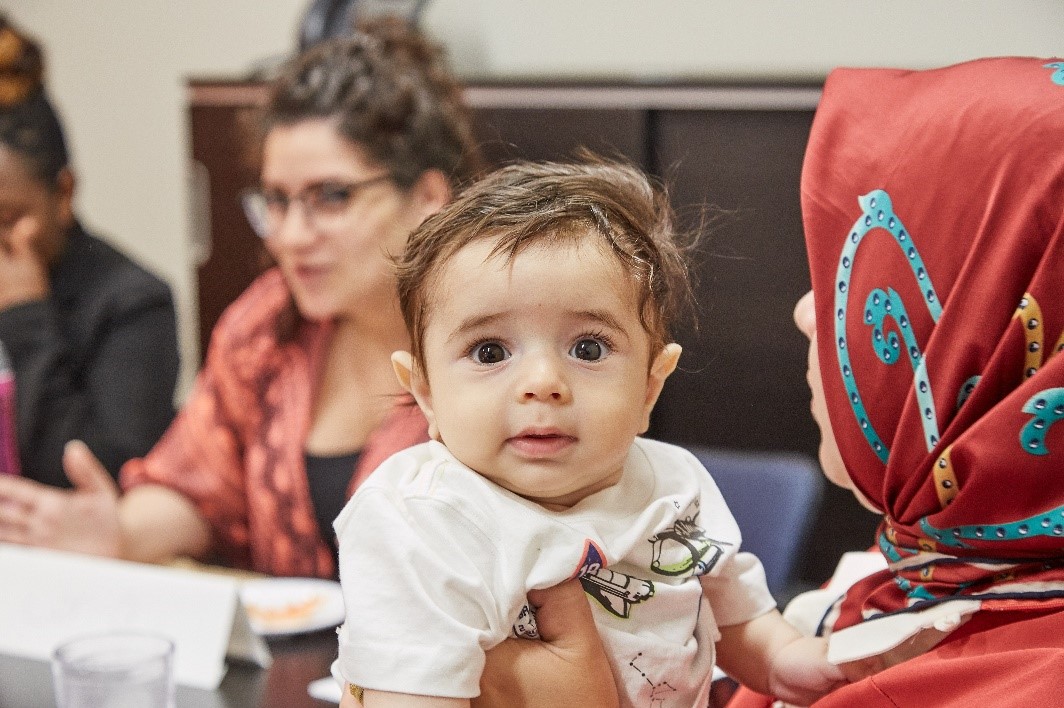25 Building Communities of Support
The term “community of support” refers to a group of people who are brought together by common interests, values, and/or beliefs who support one another with common goals.[1] For many graduate students, finding a community of support is key to their success – both with their research and in their personal lives. Peers in your department, or members of a shared interest group – like an ultimate frisbee team or cooking group – can provide much needed social and emotional support and can often normalize common fears and anxieties of being a graduate student (e.g., “imposter syndrome”). Here are some ways you can bring together communities of support within or outside of McMaster.
Building communities within McMaster
- Take part in or create opportunities for shared experiences with individuals in your department or lab group. This might include lunches, hiking/walking breaks, social events, and/or sports leagues.
- Join a group mindfulness or peer-to-peer discussion forum with other graduate students. Learn more by reviewing McMaster’s guide on mindfulness [https://hslmcmaster.libguides.com/c.php?g=306766&p=2045013].
- Set up a weekly writing club in your department.
- Attend regular graduate events run through the Graduate Student Association or other graduate bodies (e.g., trivia night at the Phoenix or International Student Board Game Nights). The School of Graduate Studies Student Life team puts on free social events for graduate students throughout the year, like ice skating in the winter. Keep an eye on your inbox for the mailer announcing these events; sign up and encourage a group from your lab or department to come.
- Do you have children? Consider joining the GradParents Network, joining the GradMoms Circle, and attending the Graduate Student Family Picnic.
- Participate in a Thesis Writing Bootcamp [https://gs.mcmaster.ca/thesis-boot-camp/].

Building communities outside of McMaster
- Join a social or cultural group that caters to your interests. For example, join a rock climbing gym or pottery class, volunteer with a long-term care facility, or learn a new skill like gardening or cooking
- Meet new people by actively attending free events in the Hamilton community, such as Art Crawls, Studio events, or by taking hikes or walk through the local trails. Review Tourism Hamilton’s Events Calendar [https://tourismhamilton.com/events-calendar] to learn more.
“Within McMaster, the group of graduate students I began with in my program were involved with inter-murals my first few years. We had “Sociology Grad Student” teams in basketball, indoor and outdoor soccer, floor ball and other sports. Getting involved with these teams (although I was not a very sporty person) allowed me to connect with other grad students and develop relationships beyond the lab/office. There was a great culture of this in my department – as well as having lunch together and also of reading together at coffee shops while doing courses or studying for comps. This provided a group to talk to academically and personally. If this type of culture doesn’t exist in your department, I would suggest giving inter-murals, coffee shop study dates or something else a try to build community. Participating in activities put on by the school of graduate studies also helped, as well as being involved with several SPICES grant groups during my PhD.”
Sociology PhD Graduate

- MacQueen KM, McLellan E, Metzger DS, Kegeles S, Strauss RP, Scotti R, Blanchard L, Trotter RT. (2001). What is community? An evidence-based definition for participatory public health. Am J Public Health. 91: 1929-1938. ↵

